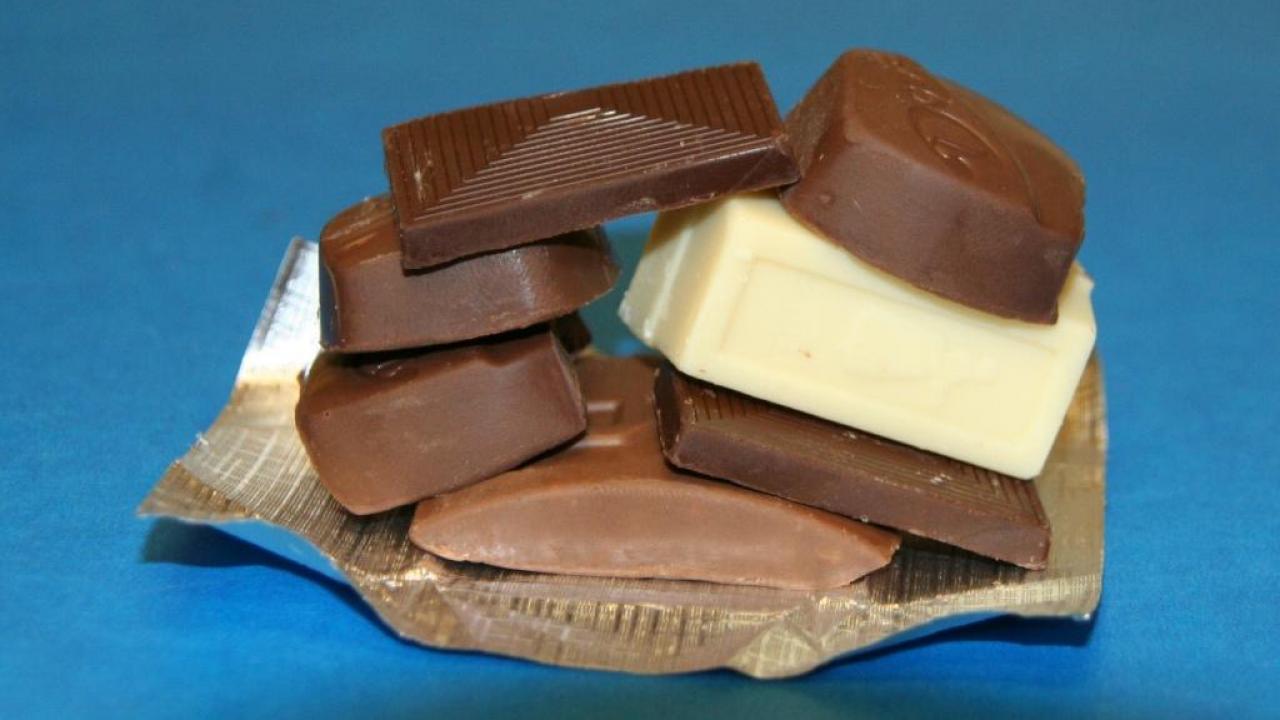
Dark chocolate for Valentine’s Day?
UC Davis research finds dark chocolate may lower risk of heart disease.
February 11, 2014
(from El Paso Times)
Chocolate takes center stage as we approach Valentine's Day, and we savor it in various forms: confections, cakes, pies, entrees and more.
For centuries, physicians have prescribed chocolate in various forms to treat a long list of ailments — including depression. Recent studies have even reported that cocoa contains ingredients similar to mood-elevating drugs and antidepressants.
Records exist showing that humans ingested chocolate as a beverage more than 3,000 years ago in Mesoamerica, the region from central Mexico to Guatemala, where cacao trees grew wild.
During the 20th century, chocolate had some rough going — it was often criticized as a high-fat, high-calorie food, associated with obesity, dental and other unhealthy problems. Many of the complaints turned out to be more myth than fact. There's agreement today that sugar, not chocolate, is the most likely culprit in cavity formation; some studies even claim that cocoa butter may offer some plaque protection. A Pennsylvania medical school's 20-year study showed eating chocolate neither caused nor aggravated acne. Research at California's University of California, Davis, found that instead of causing high cholesterol, dark chocolate has high levels of phenolics — some of which may help lower the risk of heart disease.
(Read the full article, by Ruth Taber, Feb. 5, 2014, El Paso Times. The article includes information on the history, health attributes, and a recipe for molten chocolate cake.)